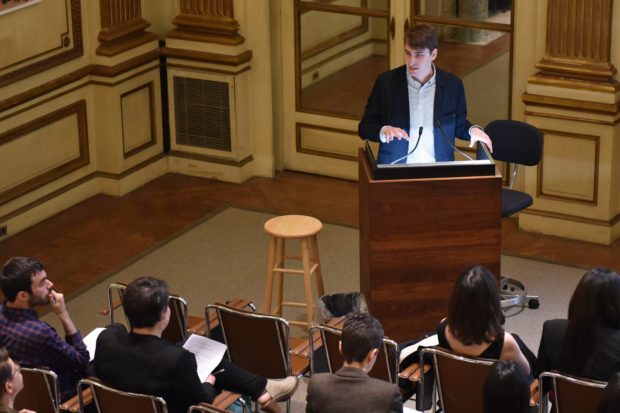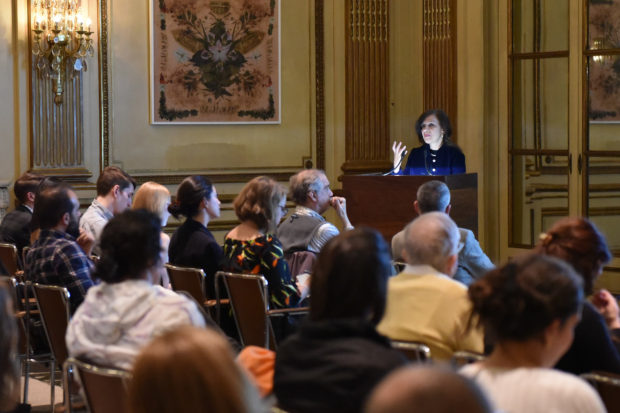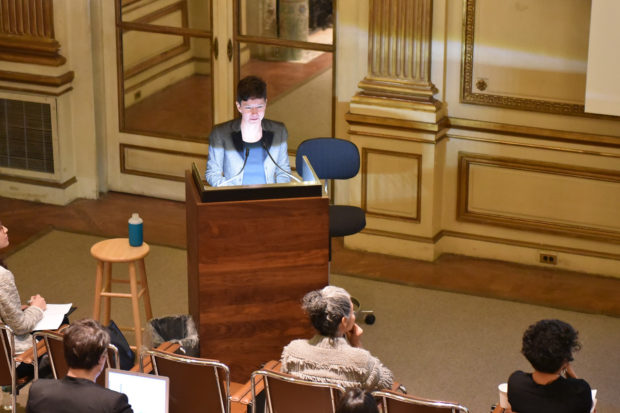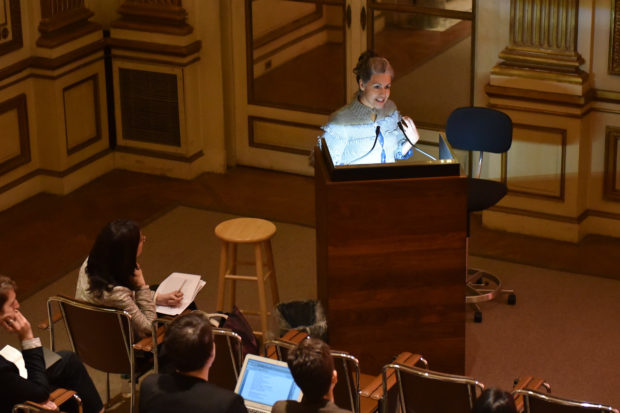BEYOND THE SYMBOLIC: ART AND SOCIAL COMMITMENT IN THE AMERICAS
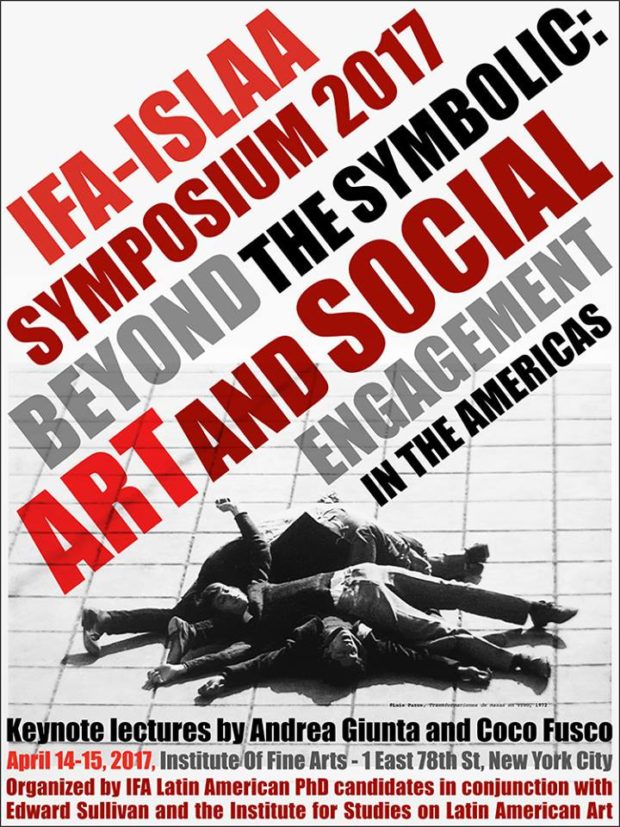 In the aftermath of the 2016 US Presidential Election, Tania Bruguera issued the following call to artists: “The time for the symbolic has ended. Art is now a tool—not to make the system work better, but to change the system.” This symposium interrogates the relevance of merging art and politics in the Americas, especially in works that explicitly seek to resist political oppression, economic imperialism, and legacies of colonialism through public discourse. We aim to address not only contemporary works that marshal “relational aesthetics” at a moment of profound geopolitical crisis, but any intervention that has sought to target the body politic and yield political or social transformation. Less interested in quantifying the efficacy of such works, this symposium hopes to examine larger questions regarding the potential ability of artistic practice to produce concrete results—that is, the compatibility of art and activism. What constitutes success or failure? When, if at all, must art bear the burden of achieving sociopolitical change? For whom is this art produced, and to whom is it responsible? Might failure be a desired outcome?
In the aftermath of the 2016 US Presidential Election, Tania Bruguera issued the following call to artists: “The time for the symbolic has ended. Art is now a tool—not to make the system work better, but to change the system.” This symposium interrogates the relevance of merging art and politics in the Americas, especially in works that explicitly seek to resist political oppression, economic imperialism, and legacies of colonialism through public discourse. We aim to address not only contemporary works that marshal “relational aesthetics” at a moment of profound geopolitical crisis, but any intervention that has sought to target the body politic and yield political or social transformation. Less interested in quantifying the efficacy of such works, this symposium hopes to examine larger questions regarding the potential ability of artistic practice to produce concrete results—that is, the compatibility of art and activism. What constitutes success or failure? When, if at all, must art bear the burden of achieving sociopolitical change? For whom is this art produced, and to whom is it responsible? Might failure be a desired outcome?
Organized by Institute of Fine Arts PhD candidates in Latin American art: Brian Bentley, Madeline Murphy Turner, Sean Nesselrode Moncada, Blanca Serrano Ortiz, and Juanita Solano Roa; in conjunction with Edward J. Sullivan.
—
Program
Friday, April 14, 2017
Welcome and Opening Remarks
Edward Sullivan (Helen Gould Sheppard Professor in the History of Art, The Institute of Fine Arts)
Keynote Lecture
Andrea Giunta (Tinker Visiting Professor, Columbia University, and Professor of Latin American Arte Facultad de Filosofía y Letras, Universidad de Buenos Aires)
People, Mass, Multitude
Introduced by Sean Nesselrode Moncada (PhD candidate, The Institute of Fine Arts)
–
Saturday, April 15, 2017
Panel 1: Alternative Structures
Moderated by Brian Bentley (PhD candidate, The Institute of Fine Arts)
Pablo Santa Olalla (PhD candidate, Historia del Arte, Universitat de Barcelona)
Not Only Mail Art: From “Inobjetual” Experiences to Performance. Clemente Padín, Performativity and activism, 1971–1977
Amanda Suhey (PhD, Art, Art History and Visual Studies, Duke University) Gold Standards/Legacies of Failure
Jessica M. Law (PhD candidate, Department of Art History, Visual Art and Theory, University of British Columbia)
All A are B, or No A is B, but what about C? Notes on Amalia Pica’s Diagrams
–
Panel 2: Art/Action
Moderated by Blanca Serrano Ortiz (PhD candidate, The Institute of Fine Arts)
Mya Dosch (PhD Candidate, Art History, The Graduate Center, City University of New York)
Mobilizing the Aesthetics of Bureaucracy: Grupo Suma’s October 2, 1978 Interventions
Paulina Varas (Researcher and professor, Campus Creativo, Universidad Andrés Bello and Coordinator, CRAC Valparaíso, Chile)
Desobedecer la Escena de Avanzada: Una lectura contextual de CADA en el Chile de los años ochenta
María del Carmen Montoya (Assistant Professor of Sculpture and Spatial Practices, Corcoran School of the Arts and Design, George Washington University)
Ghana Think Tank: Creative Problem Finding on the US-Mexico Border
–
Panel 3: Distributed Objects
Moderated by Madeline Murphy Turner (PhD candidate, The Institute of Fine Arts)
Philomena López (PhD student, Art History, Theory and Criticism, University of California San Diego)
Señor Suerte: A Critique of Antagonism
Lorna Dillon (Associate Lecturer, Modern Languages, University of Kent)
Textile Art, Collective Memory and Transitional Justice
Manuela Ochoa (Curator, Museo Nacional de la Memoria, Bogotá)
When Memory Surrounded Justice
–
Keynote Lecture
Coco Fusco (Andrew Banks Endowed Chair, College of the Arts, University of Florida)
The Art of Intervention: Performance and the Cuban Public Sphere
Introduced by Juanita Solano Roa (PhD candidate, The Institute of Fine Arts)
Closing Remarks
Edward Sullivan (Helen Gould Sheppard Professor in the History of Art, The Institute of Fine Arts)
—
Photo Gallery
